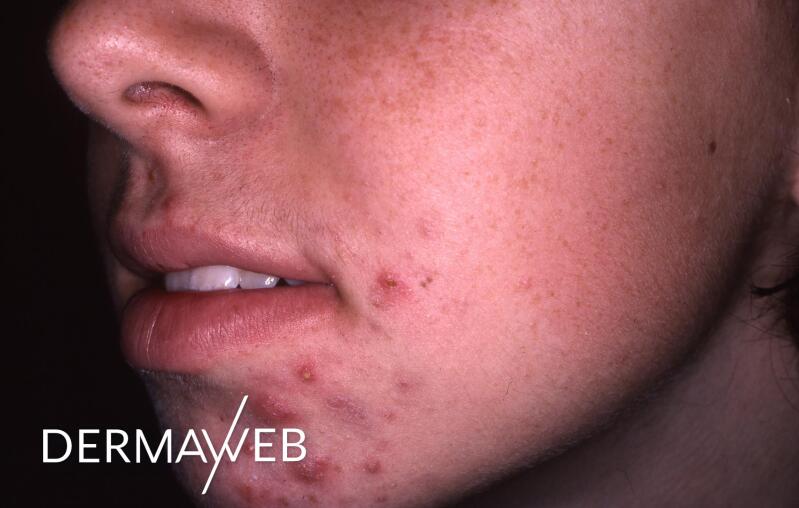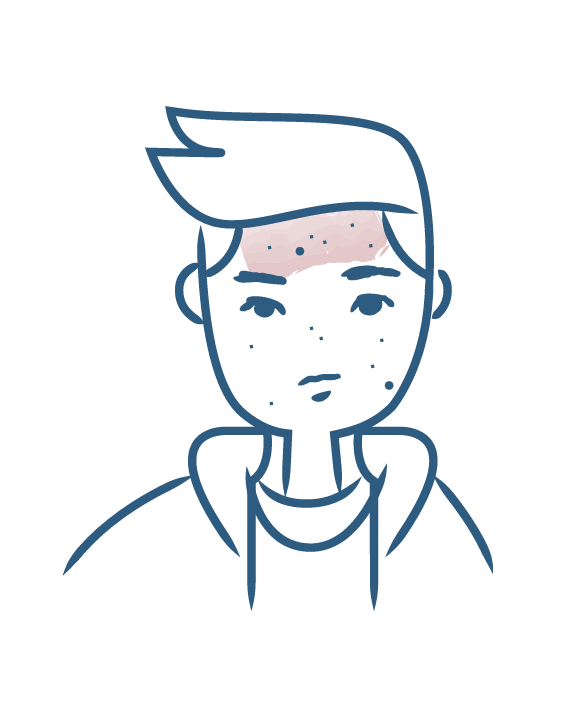-
Your concerns
Our articles to help you gain a better understanding
-
Our solutions
-
Ducray Dermatological laboratories
Our articles to help you gain a better understanding

Inflammatory acne is characterized by the presence of papules, pustules or “nodules”, which are so named because of their size and depth in the skin.
The preferred areas for inflammatory acne and other acne types are the T-zone of the face (forehead, nose and cheeks, chin), the back, the upper chest, etc. In adult women, inflammatory acne mainly affects the lower part of the face.
The main inflammatory acne spots are papules (red spots), pustules (red spots filled with pus) or even deeper and more painful nodules that can develop into abscesses or cysts.
The risk of scarring is generally greater in inflammatory acne than in retentional acne, especially when the lesions are frequently touched.
In addition to the phenomena of hyperseborrhea (too much sebum) and hyperkeratinization (too many cells), inflammatory acne results from the abnormal build-up of a bacteria called Cutibacterium acnes. This bacteria normally grows on the surface of all skin but plays a major role in acne. It promotes the occurrence of inflammatory acne lesions or the evolution of retentional acne lesions (blackheads and whiteheads) into inflammatory acne lesions.
After examination of the lesions and discussion with the patient, the doctor proposes a treatment adapted to the inflammatory acne, locally and/or generally. This must be properly followed up in order to obtain results. Inflammatory acne and retentional acne are often linked, hence the need for comprehensive treatment that takes into account both types of lesions.
Hygiene and care must be adapted to inflammatory acne-prone skin on a daily basis. It is important to use a cleansing product that gently cleanses and purifies the skin, a soothing and treating cream to reduce inflammatory acne spots and reduce marks, as well as complementary care products such as a mask, lotion or stick for rapid and localized action.
Oily or acne-prone skin

Oily or acne-prone skin
NEWSLETTER
Dermatological expertise
To better understand your skin and hair, discover our exclusive content and innovative care products designed to improve your quality of life..